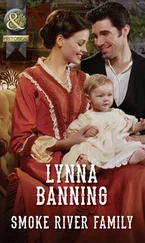“ Him ,” says the man with the umbrella. “It is a he.”
Behind Thomas, the rat scratches the wall. Then it starts screaming, a sound high-pitched, inarticulate, feral. And also: human. Thomas’s body knows it before his head has finished the thought. He and Livia react as one. They jerk away from the noise.
It pushes open the wardrobe door.
ф
It is not that they spill out and tumble to the floor like potatoes from a bust sack. But all the same the door is open and a foot is sticking out into the open. The man with the umbrella reacts first. He steps up and pulls them out, by an ankle and a shoulder. They are so conjoined that they drop to the ground together, a muddle of limbs. For all the shock their presence must cause him, the man is not interested in them. He steps over, sticks his head into the wardrobe, stands there sniffing.
“Did you smoke?” he asks them, clipped and measured, not shouting. “In the wardrobe, did you smoke?
When they don’t answer, he gestures to the captain. “Take them out of here. Quick now. You, too, Katie, if you will?” This last part to Lady Naylor who is staring at them in pale silence.
By the time Thomas has recovered his wits, the captain is holding him and Livia by their arms and is pushing them out of the cabin, all the while muttering excuses, curses, his head drawn into his body, a dog expecting to be whipped. Outside, his grip relents a little. Thomas might be able to wrench free. What then, however? Run away? Hide? They have come too far to leave without answers.
Lady Naylor saves him the decision.
“Let go of them,” she instructs the captain. Then, taking the lamp out of the Dutchman’s hand: “You may go now. Wait for us on deck.”
Captain van Huysmans hesitates only a moment before walking away, red-faced and shaking his head. He must be honest enough a man to know he has lost command of his ship. Lady Naylor shines the lamp after him until she is sure he is gone. Only then does she turn to Livia.
“You are alive!” The relief on her face is unmistakable.
All the same Livia evades the hand her mother stretches out towards her.
“You tried to kill us!” she rages, and a curl of Smoke fills the space between them.
They both stare at it, mother and daughter, while it settles as Soot on one side of the lamp and colours the light. Livia’s face shows defiance, Lady Naylor’s a mixture of puzzlement, relief, and pride.
“So you learned to sin.”
“No jests, Mother, no clever talk, no evasions. You tried to kill us. We have a right to know why!”
“Is that what you think? Why you went into hiding? That I sat in that windmill and took potshots at my own child? It makes sense, I suppose. No, I did not try to kill you, my love. I believe Julius did.”
“Because you ordered him to!”
“I didn’t.” A frown appears on Lady Naylor’s forehead, fine-etched, scrupulous. “I merely asked him to scare the boys into returning.”
Her palm rises to halt any further questions and she looks back over her shoulder, to the door of the captain’s cabin.
“Hush now, I beg you. There are more pressing things to discuss. How long were you in there? You may have done terrible, irreversible harm. And yet I am glad to see you! Strange, isn’t it? Foolish! Our one and only chance and here you may have dashed it all. When did you slip into the captain’s wardrobe?”
“We came just before you did.”
It is Thomas who answers and for the first time her gaze jumps from her daughter to him. She takes in his ear; his dirty, Soot-starched clothes.
“What’s behind the wardrobe, Lady Naylor?”
“Change,” she answers. “Revolution.” Her voice shakes with the word, as does her hand and with her hand the lamp: the corridor spinning, skirmishes of light and dark. “But I am a fugitive now. The manor has been searched, and my London house is being watched. Trout’s after me.”
“The headmaster?”
“Headmaster? Why yes! I forgot that you know him. See, your headmaster is like the rest of us: he has a past. Master Trout has returned to his old profession.”
Before she can explain further, the door of the cabin swings open and the gentleman with the umbrella steps out. Thomas has a clearer view of him now. The man is small, slight, doe-eyed; elegant in a brown wool suit and faun-coloured gloves. Unusually for a man of his station, he does not appear to have brought a hat. He speaks to Lady Naylor, not to them.
“I think it is all right, Katie. Significant weight loss and anaemia, but no sign of infection. I have put on his respirator now. We will know for sure once I have taken some blood tests.”
Thomas notes again the familiar use of the first name. Katie. Lady Naylor’s name, he believes, is Catherine. These two know each other well. From the Continent; in a different tongue, perhaps. The man’s accent is slight if distinct, the words overly clipped.
“This must be your daughter. And one of the boys you told me about. Thomas, is it? The Smoker.” He looks at them with interest. Gently , if such a thing is possible. There is no harshness to the man. “We must leave the ship now. Will they pose an obstruction to our plans?”
He turns without waiting for an answer, back into the room, closing the door behind him. His question remains with them, a problem he expects them to figure out by themselves. For a long minute, not one of them has the heart to take it on. Then Thomas speaks.
“What is he talking about, this man?” Thomas is not smoking yet, but he can feel it close, the edge of rage. At what exactly, he does not know. “Who is he? What plans?”
Lady Naylor watches him intently. He is reminded of the night when he confronted her in her study: he held a letter opener then, and searched her skin for a likely place to bury its point. He might have killed her that night. But is this true? The Smoke — visible now, curling from his nostrils, from the stump of his ear — may be darkening his memories. Even the past bristles with his anger. It must take courage for her to step close to it, lay a hand on his chest. He does not flinch.
“I promise I will tell you, Thomas. On my husband’s life. But right now we need to leave the ship before Trout catches up with us. Or all is lost.”
She waits until his Smoke dissipates before phrasing a question of her own.
“Was it you who set Trout on me?”
“No.”
“I am not accusing you,” Lady Naylor smiles. “I am just wondering what set him off.”
“Charlie,” Livia says.
Thomas has the same thought. A stab of fear in his guts, down low, beneath the navel. People talk about hearts too much , he thinks. And reaches out, Lady Naylor’s eyes following the gesture, to squeeze Livia’s hand.
ф
The man with the umbrella emerges. He is followed by a monster. Four feet high and livid with the smells of the chamber pot, its hands cuffed to a belt. Where the face should be something else reigns, not quite a blank. Smooth, hairless skin, more black than brown: taut on top then hanging slack around the cheeks and neck. Twin lenses for eyes, palm-sized, ringed in metal. A leather trunk for a mouth, trailing to its chest.
A mask , Thomas realises. A child in a mask.
The man has attached a leash to his belt and walks the boy past them in precise, urgent steps. The child himself shuffles as though drugged; shoulders stooping; hopeless. They are past before Thomas can demand an explanation. All he can do is fall in step behind.
Up on deck the captain stands quietly near the stairwell. It is too dark to see his face. The man with the umbrella passes him a purse, then turns away without a word, marching the child across the plank. On the quay he stops, takes off his long woollen coat, and carefully wraps the child in it head to toe. The next moment he has gathered him up, is cradling the boy against his body: a shapeless mass, four feet long and sagging at the centre.
Читать дальше












